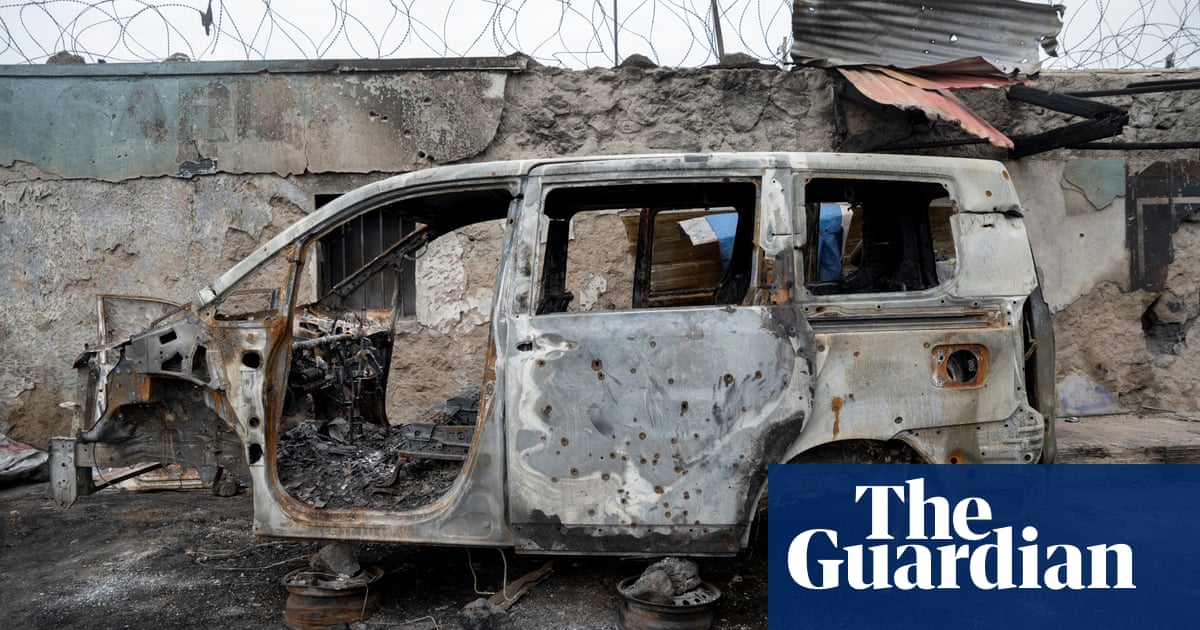Rebels of the M23 armed group and allied Rwandan forces have launched a new offensive in the eastern Democratic Republic of Congo (DRC), days before the Rwandan and Congolese presidents are due to attend a crisis summit.
The UN said the battle for the key city of Goma, which M23 and Rwandan troops seized last week, had left at least 2,900 people dead – far higher than the previous death toll of 900.
Breaking a ceasefire they had declared unilaterally – and which had been due to come into effect on Tuesday – M23 fighters and Rwandan troops seized a mining town in South Kivu province, resuming their advance towards the provincial capital, Bukavu.
Intense clashes broke out at dawn on Wednesday around Nyabibwe, about 100km (60 miles) from Bukavu and 70km from the province’s airport.
The M23 had said in declaring the ceasefire that it had “no intention of taking control of Bukavu or other localities”.
“This is proof that the unilateral ceasefire that has been declared was, as usual, a ploy,” Patrick Muyaya, the Congolese government spokesperson told AFP.
In more than three years of fighting between the Rwanda-backed group and the Congolese army, half a dozen ceasefires and truces have been declared, but all have been unceremoniously broken.
Local and military sources said in recent days that all sides were reinforcing troops and equipment in the region.
Last week’s capture of Goma was a major escalation in the mineral-rich region, which has been scarred by relentless conflict involving dozens of armed groups over three decades.
As Goma counted its dead, Vivian van de Perre, the deputy chief of the UN peacekeeping mission in the Democratic Republic of Congo (MONUSCO), gave an updated toll from the battle for the city.
“So far, 2,000 bodies have been collected from the Goma streets in recent days, and 900 bodies remain in the morgues of the Goma hospitals,” she told a video news conference, saying the toll could still rise.
International criminal court prosecutors said in a statement they were “closely following” events in the eastern DRC, “including the grave escalation of violence over the past weeks”.
In Bukavu, a city of one million people that residents fear will become the next battleground, a crowd gathered for an ecumenical prayer service for peace, organised by local women.
“We are tired of the non-stop wars. We want peace,” Jacqueline Ngengele, one of those who attended, told AFP.
The president of DRC, Félix Tshisekedi and his Rwandan counterpart, Paul Kagame, are due to attend a joint summit of the eight-country East African Community and 16-member Southern African Development Community in the Tanzanian city of Dar es Salaam on Saturday.
A day earlier, the UN Human Rights Council will convene a special session on the crisis, at the DRC’s request.
Fears the violence could lead to a wider conflict have galvanised regional bodies, mediators such as Angola and Kenya, as well as the UN, EU and other countries in diplomatic efforts for a peaceful resolution.
But the DRC’s top diplomat accused the international community of being all talk and no action on the conflict.
“We see a lot of declarations but we don’t see actions,” foreign minister Thérèse Kayikwamba Wagner told journalists in Brussels.
Wary of the crisis spilling over,several neighbouring countries have already said they are bolstering their defences.
A UN expert report said last year that Rwanda had up to 4,000 troops in the DRC, seeking to profit from its vast mineral wealth, and that Rwanda has “de facto” control over the M23.
The eastern DRC has deposits of coltan, a metallic ore that is vital in making phones and laptops, as well as gold and other minerals.
Rwanda has never explicitly admitted to military involvement in support of the M23 and alleges that the DRC supports and shelters the FDLR, an armed group created by ethnic Hutus who massacred Tutsis during the 1994 Rwandan genocide.
Article by:Source: Agence France-Press in Bukavu













